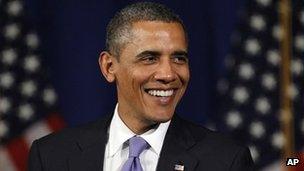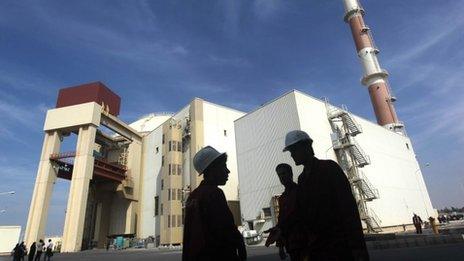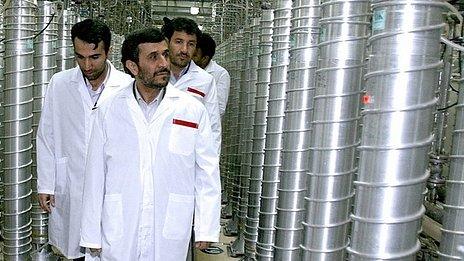Elections help Obama. A bit.
- Published
- comments

Republicans would dearly like to wipe that smile off Barack Obama's face
There will be smiles in the White House. Not high fives or broad grins. Thin, wan smiles perhaps. But the overnight election results were a slither of slightly good news for the president.
NBC put it well, external: "A bit of a lift" for Obama.
The best result for Democrats, external was in Ohio, where a law restricting collective bargaining by unions was overturned - a defeat for economic conservatism.
In Mississippi, a proposal to declare that an embryo is a person in law from the moment of fertilization did not win - a defeat for social conservatism (though of course not all social conservatives are Republican).
There's reason for Republican cheer, external, too.
They won more seats in the Virginia statehouse. In Ohio, voters did support a proposal against Obama's changes to healthcare, external.
So it is a mixed picture. That in itself is better news for Obama than the resounding Republican victories of a year ago.
But the reason it is modest good news for Obama is not just because everybody likes a few wins. It is about how and why you win.
Recent analysis, external proposed a very simple formula. It said the election hung on two factors: the state of the economy and the appeal of the Republican candidate.
To put it crudely, Mitt Romney + worse-than-expected economy = Obama defeated.
Herman Cain + better-than-expected economy = Obama re-elected.
This is over-mechanistic but broadly correct. It is about what will influence people whose votes are up for grabs.
Most people know whether they are Republican or Democrat, and little things like the state of the economy or the candidate will not change their minds.
As ever, it is swing voters who make the difference. And at the moment they are a sizeable group in America.
Look at these graphics, external. You don't have to study them in detail.
Just look at how much difference it would make if the yellow wedges of undecideds are added to one side or the other.
But the other critical factor in elections is turnout. It is all very well telling an opinion pollster that Ms Right would make a better president than Mr Left.
To make a difference, you have to get to the polling station and put a cross on the ballot paper. Or at least get a postal vote.
The great fear of the Obama campaign must be that the enthusiasm of the tea party will help the Republicans, while their own disappointed, demoralised and the disappointed supporters will simply stay at home.
These elections suggest otherwise. There was a high turnout in Mississippi and Ohio and it suggest Democrats are bothered and are voting.
There may be a simpler explanation. At least in Washington it was a glorious bright and sunny autumn day, hotter than most British summers.
Good weather makes people more likely to vote, I've even heard it said that good weather encourages optimism and so helps an incumbent. Obama will welcome any ray of sunshine at the moment.
- Published9 November 2011

- Published8 November 2011
